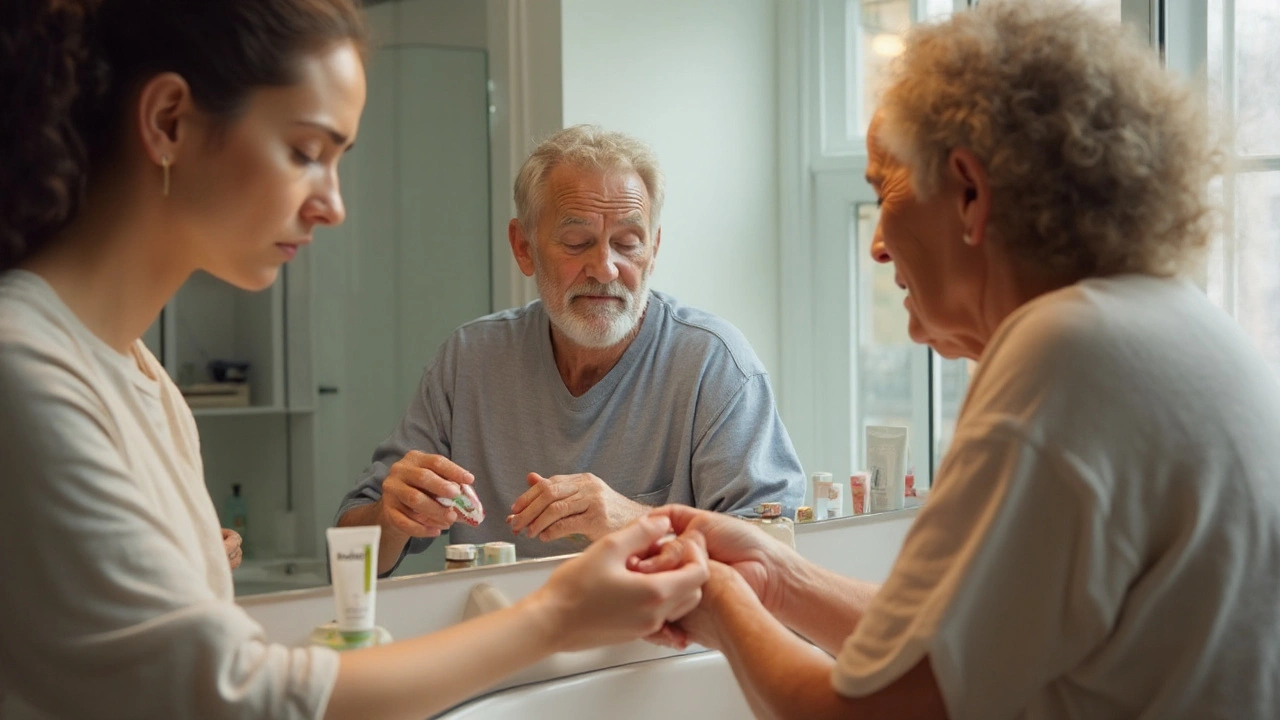Skin Inflammation: Causes, Relief, and Everyday Solutions
Skin inflammation is something almost everyone deals with at some point. Redness, swelling, itchiness—these signs show your skin is reacting to something, whether it’s an allergy, infection, or irritation. Instead of guessing, it pays to know exactly what’s setting your skin off and how you can calm things down quickly.
You might be surprised how common skin inflammation really is. It shows up as rashes, eczema patches, itchy bumps, and even peeling or blistering. Allergens in soaps, laundry detergents, or certain foods can start the problem, while harsh weather, stress, or chemicals do their part too. Ever scratched a bug bite until it stung? That’s inflammation getting worse—in real life, itching feeds more inflammation.
So what can you do about it? First, stop whatever’s causing trouble. If new lotion or detergent irritates your skin, swap it out. Cool compresses and gentle cleansers (not harsh soaps) bring fast relief for most everyday flare-ups. For bug bites or itchy red spots, over-the-counter creams with hydrocortisone or soothing agents like aloe or calendula can help dial down the chaos. Just don’t overdo steroid creams—short-term use is fine, but long-term can thin your skin.
Anti-inflammatory gels are worth exploring if you want targeted relief. Take flurbiprofen gel, for example. People use it to soothe muscle or joint pain, but it’s also valued for shrinking swelling around inflamed areas. It hits only where it’s needed, sparing the rest of your system from side effects. Always read product labels closely, though, especially if you have allergies or sensitive skin.
Sometimes, skin inflammation is a side effect of common meds or health conditions. Even antibiotics or diuretics can cause rashes or itching in some people. If you’ve just started a new prescription and your skin’s erupting, don’t ignore it—talk with your doctor or pharmacist. Finding out the real cause can mean a quick fix instead of weeks of discomfort.
Don’t forget allergies. Certain foods (like nuts, shellfish, or dairy) can show up on your skin as hives or swelling—even hours after you eat them. The same goes for pollen, pet dander, and mold. Tracking what you touched or ate before a flare-up helps solve the puzzle for next time.
Moisturizing is a simple game changer. Dry, cracked skin makes everything worse, so keep a fragrance-free moisturizer on hand and use it after every bath or shower. Skip hot water, which strips away the oils that protect your skin.
If your inflammation is stubborn—peeling skin, oozing, big blisters, or pain that won’t quit—don’t just wait it out. Skin infections, severe allergic reactions, or underlying health problems need medical attention and stronger treatments. Getting help early keeps things from spiraling into bigger issues.
On the bright side, most skin inflammation settles down with a few smart changes. Listen to your body, keep it simple, and you’ll be on your way to calmer, healthier skin—without endless guesswork or stress.
Tenovate Cream: Usage, Benefits, Side Effects, and Patient Tips
by Melissa Kopaczewski Jul 31 2025 17 MedicationsDive deep into Tenovate: when to use it, how it works, safety tips, real-life experiences, and clear answers to common questions about this popular steroid cream.
READ MORE
